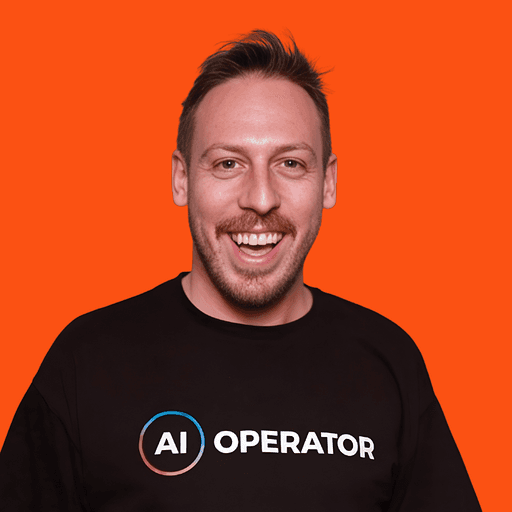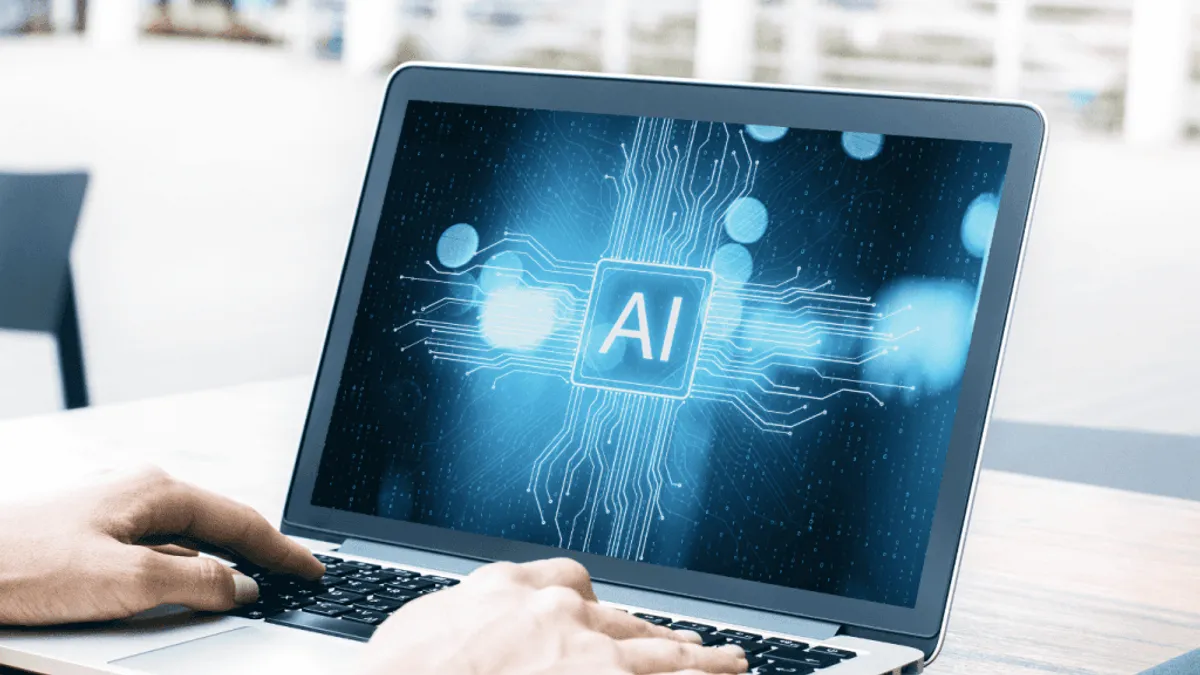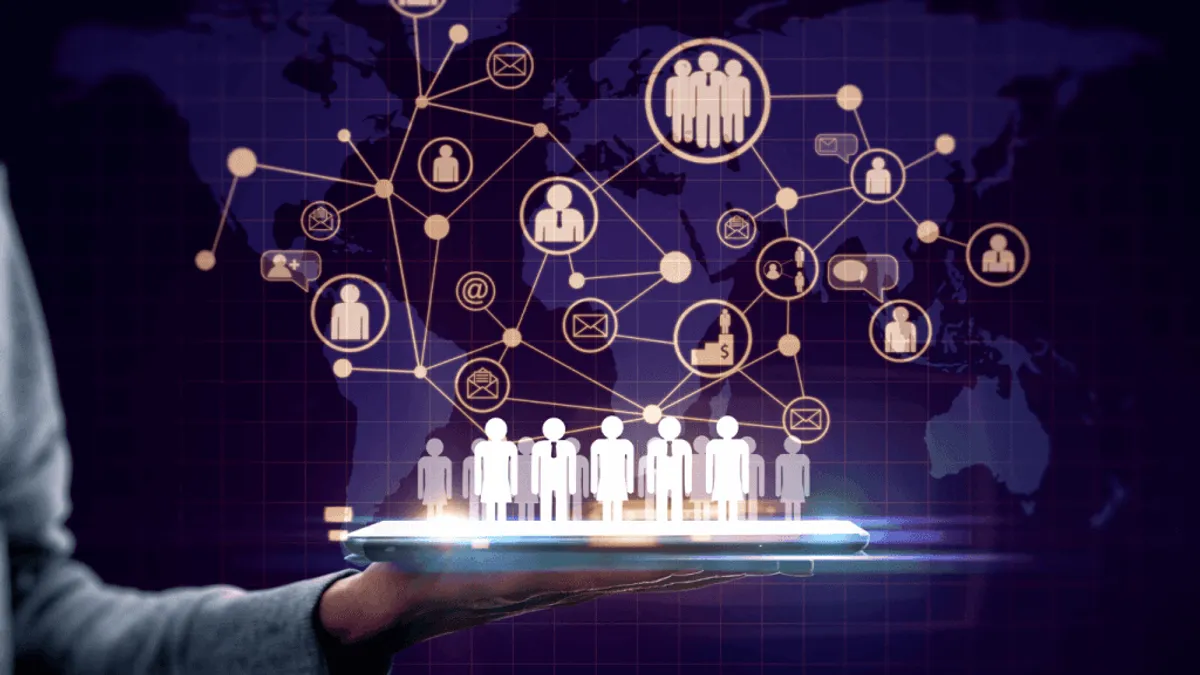Artificial Intelligence for Human Resources: The New Era for Companies


Discover how AI transforms HR: automate recruitment, enhance onboarding, and boost efficiency. 86% of recruiters say AI speeds up hiring. Start the new era.
Imagine a world where HR professionals can focus on what truly matters: people. With artificial intelligence for human resources (AI) revolutionizing the field, a new era is dawning—an era where managing people is at the core of every successful company,
As AI automates tedious and time-consuming tasks, it frees up HR professionals to concentrate on employee engagement, satisfaction, and growth.
From talent acquisition and employee onboarding to learning and development programs, artificial intelligence for human resources is reshaping the way HR departments operate.
But how can HR professionals adapt to this new era and harness the full potential of AI? This guide will dive into the growing role of AI in human resources and explore the factors that affect its adoption, the evolving role of AI in core HR functions, the common challenges in AI integration, real-world examples of AI in HR, and how HR professionals can prepare for the AI revolution.
The growing role of AI in human resources

As AI continues to make strides across various industries, human resources is no exception. The rapid advancements have made it possible for HR professionals to leverage machine learning, natural language processing, and other AI-driven techniques to help with the following:
- Analyzing data of employees and candidates
- Making data-backed decisions
- Automating repetitive and time-consuming tasks
- Providing insightful data
Put simply, AI is transforming HR operations and enhancing the employee experience.
The shift towards AI-driven HR
Traditionally, HR management has been solely about people-centric processes. Today, this is combined with a data-driven approach.
The whole HR technology landscape is experiencing a significant shift as more and more professionals are starting to adopt AI-driven tools. In fact, 64% of practitioners said they’d trust a robot over their manager for advice.
This shift is not only transforming the relationship between workers and their managers but also redefining what it means to be a manager in an AI-driven workplace. AI-driven tools, such as generative AI or conversational AI offer user-friendly and ultimately help reduce the burden of administrative tasks on HR professionals.
Along with the increasing adoption of AI comes the changing role of HR managers. No longer limited to administrative tasks, HR professionals now have the opportunity to focus on strategic initiatives to better support their workforce. In turn, they can focus more on the “human” aspect of their jobs. This meaningful engagement with employees leads to increased satisfaction and improved overall experiences.
5 key drivers for AI adoption in HR

So, what’s driving this AI revolution in HR? Here are the key drivers that make AI adoption a strategic move and not just a mere trend:
1. Efficiency and time savings:
HR professionals often find themselves buried under a mountain of administrative tasks, from screening resumes to answering employee queries. AI tools, such as chatbots and automated data analysis, can handle these tasks swiftly and accurately, allowing HR teams to focus on more strategic activities.m
Example: Companies are realizing that AI can dramatically reduce manual tasks. For example, 65% of survey respondents shared that AI tools helped improve productivity and efficiency in their HR departments. This includes tasks related to performance management, employee engagement, training and development, talent acquisition, and even handling employee inquiries.
2. Data-driven decision-making:
By analyzing historical and real-time data, AI can provide insights into employee performance, identify patterns, and offer predictive analytics. This data-driven decision-making can lead to better talent acquisition, improved employee engagement, and enhanced workforce planning.
Example: An AI system can analyze employee data to predict turnover risk. By identifying employees who may be considering leaving, HR can take proactive steps to retain valuable talent, such as offering career development opportunities or addressing workplace concerns.
3. Enhanced candidate experience:
In a competitive job market, providing a seamless and engaging candidate experience is crucial for attracting top talent. AI can transform the recruitment process, offering candidates faster response times, personalized communication, and self-service options. This not only enhances the candidate experience but also reflects positively on the employer’s brand.
Example: Many companies now use AI-driven chatbots to answer candidates’ questions about job openings, application status, and company culture. For example, thanks to chatbots, live chat HR inquiries have been reduced by 75%! With these immediate responses, businesses can improve the overall candidate experience and increase the likelihood of attracting top talent.
4. Cost savings:
Cost reduction is another significant driver behind AI adoption in HR. By automating routine tasks, companies can reduce labor costs and minimize errors. Additionally, AI can help optimize human resource management and allocation, ensuring that HR teams are deployed in areas that require the human touch.
Example: In the recruitment process, for example, automated resume screening tools can help save 60% or more in costs.
5. Scalability and Consistency:
AI solutions are highly scalable and consistent because they can handle large volumes of data and tasks without compromising quality or speed. This scalability is particularly advantageous for companies that are either experiencing rapid growth or dealing with fluctuating HR demands.
Example: A growing company may need to onboard dozens of new employees in different departments simultaneously. AI-driven onboarding processes can ensure that each new hire receives a consistent and personalized experience, even when HR resources are stretched thin.
Implementing AI in core HR functions

From streamlining the recruitment process to personalizing internal development programs, AI is really transforming how HR teams operate. Here are some insights into how AI impacts the core functions of HR professionals and teams:
Talent acquisition and recruitment
One of the most significant impacts of AI in human resources is its ability to transform the talent acquisition and recruitment process. AI-powered tools can automate tasks such as:
- Resume screening
- Candidate shortlisting
- Scheduling interviews
- Communicating with candidates
In a nutshell, AI can analyze resumes, identify top candidates, and even conduct initial interviews—saving HR professionals countless hours. In fact, 86% of recruiters have reported that AI does speed up the overall hiring process.
Employee onboarding and offboarding
As HR teams know, the hiring process is just the first step. Onboarding new employees and then offboarding them also takes a huge toll on the HR department.
By streamlining these processes, AI ensures a positive employee experience and reduces the likelihood of turnover. For example, AI-powered chatbots can provide 24/7 support to new employees, addressing their questions about company policies and guidelines and helping them settle into their roles more quickly.
When it comes to offboarding, HR managers can just trigger offboarding checklist generators and trackers to guide employees as they move towards their last remaining days in the company.
Learning and development programs
Continuous learning is crucial for employee growth. Armed with AI tools, HR teams identify skill gaps, recommend tailored training programs, and even predict which employees are at risk of leaving—which will allow proactive intervention.
AI can suggest tailored training courses, webinars, or workshops that are suitable for various roles. As a result, this customized approach maximizes employee growth and enhances overall job satisfaction.
Overcoming challenges in AI integration for HR

While the benefits of AI integration in HR are undeniable, it is not without its challenges.
Addressing these challenges will enable HR leaders to unlock AI’s full potential. The following subsections will delve deeper into the specific challenges of AI integration and provide guidance on how HR professionals can navigate them.
Ensuring data privacy and security
With great power comes great responsibility. HR professionals must ensure that the data processed by AI are secure and used ethically. Remember: employee data is sensitive, so it is extra crucial that HR professionals take the necessary precautions to protect this information and prevent unauthorized access.
Some key considerations for data privacy and security when using AI in HR include:
- Encrypting data
- Conducting regular security audits
- Minimizing data collection
- Implementing access controls
- Adhering to data protection regulations
- Assessing vendors
- Providing employee training on data privacy and security
Mitigating bias and ethical concerns
Another challenge that HR professionals face when integrating AI-driven tools is addressing potential biases and ethical concerns. AI algorithms are only as unbiased as the data they are trained on, and if this data contains biases, AI-driven tools may inadvertently perpetuate these biases in their decision-making processes.
To mitigate bias and ethical concerns, HR professionals should:
- Routinely assess their AI tools for fairness
- Ensure that they are using diverse and representative data sets
- Regularly audit AI tools for bias
- Set up corporate governance and internal policies around AI use
- Emphasize ethical AI implementation
Balancing human and AI roles
While AI can automate many tasks and provide valuable insights, it cannot replace the empathy, creativity, and interpersonal skills that HR professionals bring to their roles.
To strike the right balance between human and AI roles, HR professionals should:
- Start small with AI implementation
- Focusing on automating routine tasks and using AI to supplement, rather than replace, human decision-making.
- Emphasize the ethical use of AI
- Invest in employee training
- Foster open dialogue about AI’s role in HR
Real-world examples of AI in HR

To truly grasp the transformative power of AI in HR, here are some concrete and real-world examples of how AI can help HR teams:
AI-powered recruitment platforms
- Use of natural language processing and machine learning to scan resumes, analyze job descriptions, and match candidates to positions based on skills, experience, and cultural fit.
- AI-based chatbots can engage with candidates, conduct initial interviews, and offer immediate feedback, significantly reducing the time-to-hire.
- AI-driven video analysis tools can assess candidate interviews. These tools can objectively analyze candidates’ facial expressions, tone of voice, and responses to gauge their suitability for various roles, providing valuable insights to hiring teams.
Virtual assistants and chatbots for employee support
- Virtual HR assistants can quickly answer employee questions, provide on-demand training, and guide employees through HR processes like filing paid time offs or inquiring about benefits.
- Employees can ask chatbots their HR-related questions anytime, anywhere, and receive instant responses, creating a more efficient HR support system.
- AI-powered virtual assistants can provide support for tasks like processing payroll and benefits, freeing them to focus on strategic HR initiatives.
It’s high time to prepare HR professionals to lead the AI revolution

The AI revolution is upon us, and its impact on the field of human resources is undeniable.
As the world of HR continues to evolve, it is crucial for HR professionals to stay ahead of the curve and embrace the transformative potential of artificial intelligence. This approach not only enhances their roles and processes but also fosters a more positive, engaging, and supportive work environment, contributing to the long-term success of their organizations.
Ready to explore the possibilities of AI in HR or have questions about how to integrate AI into your HR practices? Contact AI Operator today to discover how we can help you navigate the exciting future of HR.
Your journey to the new era of HR begins here.
More Articles

AI Statistics 2026: What Business Leaders Must Know (Updated January 2026)
AI statistics that every leader should know in 2026: discover how organizations are adopting AI, achieving ROI, and gaining productivity.

Zapier: How to build AI-powered automations in less than one hour
Build AI-powered Zapier automations in under an hour. Step-by-step guide to automate emails, leads, and workflows with AI intelligence.

Claude for work: How to use Claude Skills and Artifacts to 10x team efficiency
Learn how to use Claude Skills and Artifacts to automate team workflows. Step-by-step guide to building reusable tools without code for 10x efficiency.